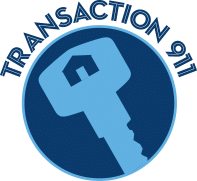
The other day one of the agents who uses our service asked whether previous plumbing repairs are a material fact. While each agent should always speak with his or her own broker and sellers should always seek the advice of an attorney, it is important to always disclose anything you know. One possible oversight could end up with everyone in mediation, arbitration, or court.
Sometimes things come up during the course of a transaction and we give them no importance. But, it is vital to absolutely pay attention and confirm that they are not material facts. One off-handed remark about the septic or the water pressure that you forget to note could be the undisclosed material fact that leads to litigation down the road.
Where should sellers disclose materials facts?
If you are a residential agent in Encinitas and you are working with an Encinitas Transaction Coordinator, then you may note that the Residential Purchase Agreement (RPA-CA) does provide you with the option of requesting from the seller either the SPQ or the SSD.
So, it begs to reason, that people ask the Transaction Coordinator, “Which one should I select? What’s the difference between the two forms?”
According to the California Association of Realtors® Summary Disclosure Chart, the SSD or the SPQ should be used to disclose material facts, a Meth-Lab Clean-up Order, and a Military Ordnance Location.
- With respect to materials facts, the document states, “A seller (transferor) or real estate agent involved in the transaction must disclose any known material facts that affect the value or desirability or the property. Whether or not something is deemed material is determined by case law.”
- With respect to the Meth Lab Clean-up Order, the document states, “In the event that toxic contamination by an illegal controlled substance has occurred on a property and upon receipt of a clean-up order from the Dept. of Toxic Substances Control (DTSC) or a Local Health Officer, the transferor must provide a copy of this order to the transferee…”
- With respect to Military Ordnance Location, the document states, “Disclosure is required when the transferor/lessor has actual knowledge that a former military ordnance location (military training grounds which may contain explosives) is within one mile of the property. The transferor/lessor must disclose in writing to the transferee/lessee, that these former federal or state military ordnance locations may contain potentially explosive munitions…”
- If items come up after the forms have been completed, an Addendum can always be generated or you can send an email or letter and get signatures of all parties on it for your file.
For additional information about the SPQ and the SSD, review the Sales Disclosure Chart provided by the California Association of Realtors® or contact your Transaction Coordinator at Transaction 911.


